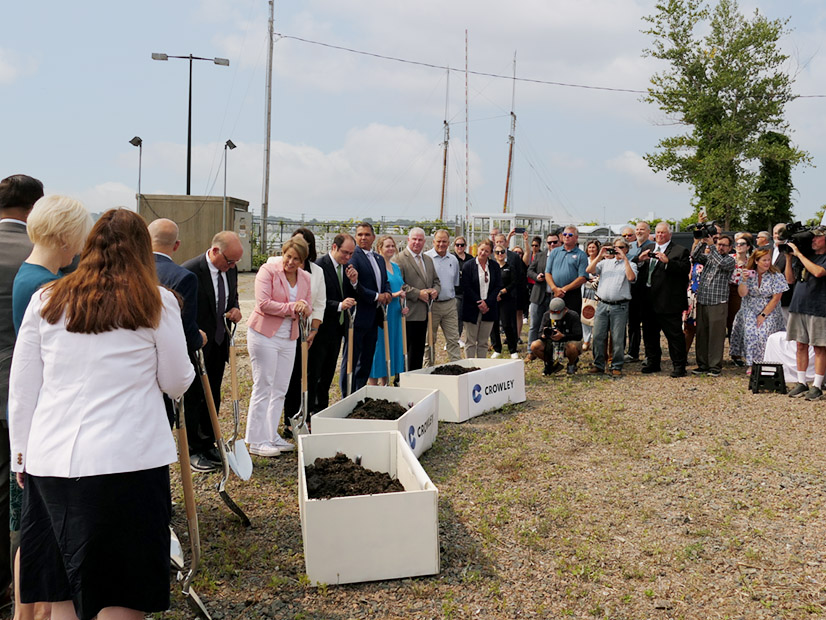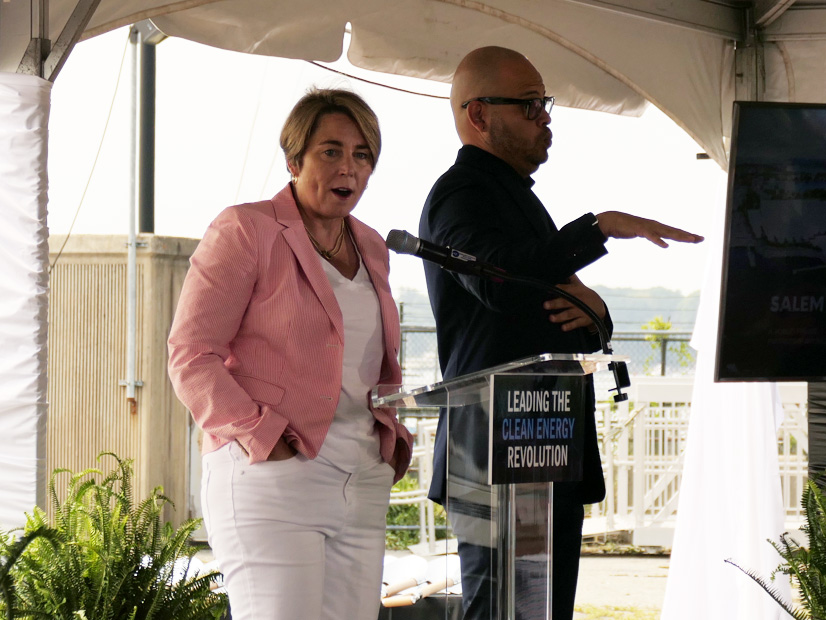SALEM, Mass. — State government leaders and project developers ceremonially broke ground on a major offshore wind terminal in the port city of Salem at the former site of a coal plant, kicking off construction on what is set to be the state’s second large offshore wind port.
The new terminal will be used for turbine assembly, staging and storage, and will support the transportation of turbines, according to Crowley Wind Services, the lead developer for the site.
The project “represents an important step forward for this industry,” Gov. Maura Healey said. “We’ve heard a little bit about setbacks lately in this space, and we’ve certainly heard some people try to knock this industry, but make no mistake, we are not going backward; we are going forward.”
Construction on the Vineyard Wind 1 project has been delayed for about a month after a blade collapsed into the ocean, although the U.S. Bureau of Safety and Environmental Enforcement authorized a limited resumption of construction earlier this week.
“Offshore wind is critical to our state; it’s critical to reducing our emissions and meeting our climate goals — which are established by law — and it’s critical for protecting our communities,” Healey added.
While construction on Vineyard Wind has been staged from the Port of New Bedford — located close to the lease area south of Cape Cod — the Salem Offshore Wind Terminal appears to be better situated to serve projects in the Gulf of Maine.
Salem is not the only port looking to get in on the action in the gulf; the state of Maine is pushing ahead with plans to build an offshore wind port facility on Sears Island in Searsport. Salem is located closer to most of the gulf’s lease areas than Searsport. (See Wind Energy Lease Areas Designated in Gulf of Maine, Oregon.)
Because of the water depths in the gulf, projects in these lease areas will likely need to rely on early-stage floating turbine technology.
Speakers at the Salem groundbreaking ceremony emphasized the local labor and economic benefits of the site’s redevelopment. According to Crowley’s environmental impact report — prepared for the state by Fort Point Associates — the project is expected to create up to 123 full-time jobs during construction and up to 200 once in operation. The facility has a planned in-service date of early 2026.
The project is expected to cost about $300 million, funded through a combination of federal, state and private money. It features a project labor agreement and a community benefits agreement worth nearly $9 million.
“Salem’s story for centuries has been written on the sea,” Mayor Dominick Pangallo said. “The climate crisis is here. But we know that while the sea can sink us, it can also save us.”





